
In the mineral processing industry, flotation process, as a core separation technology, is widely used in the processing of various ores and the production of concentrates. Its basic principle is to use the minerals to combine with bubbles under the action of flotation agents to form flotation foam, thereby achieving the separation and recovery of minerals. The successful implementation of the flotation process not only depends on the physical and chemical properties of the ore, but is also affected by a variety of operating conditions. Therefore, understanding the influencing factors in the flotation process is crucial to optimizing the process and improving the efficiency of mineral processing. This article will explore in depth the independent and dependent variable factors in the flotation process, and introduce how to improve the flotation effect and concentrate quality by optimizing the stage grinding and classification processes.
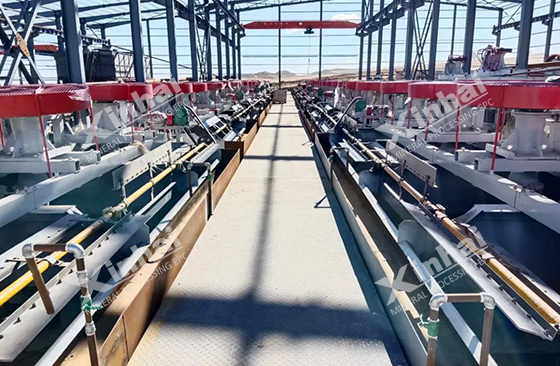
As one of the commonly used methods of mineral processing, flotation operation is a relatively complex physical and chemical reaction process, and there are many influencing factors in the process. These influencing factors can be divided into two types: independent variable factors and subsidiary variable factors.
Independent variable factors refer to those factors that are known to affect the flotation process, mainly including the composition of the ore, the contamination, the hardness of the ore, the grade of the ore and other factors.
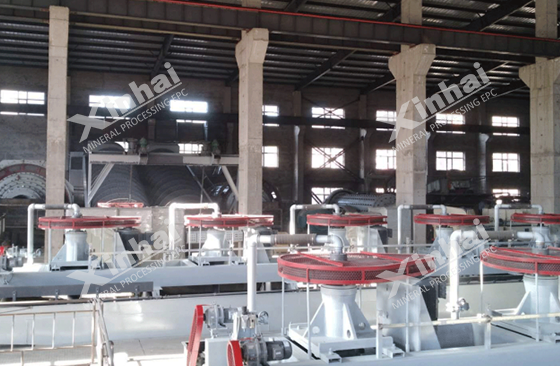
Subsidiary variable factors refer to the selection of other factors under the condition of being restricted by one factor in order to achieve the appropriate conditions for the separation of certain minerals. Such factors mainly include the grinding media, liner type, pulp concentration, grinding and classification process in the grinding and flotation process, or the oxidation of minerals in the grinding and flotation process, the type, quantity, dosage and location of flotation reagents, etc.
Different types of ores require different flotation processes. Generally, we can divide ores into two categories: general and special. General ores can be processed by general flotation processes, while special ores require new and complex flotation processes, which is mainly determined by the special technical processing characteristics of such ores. Because the physical properties and material composition of complex ores will change after mining, and there are a lot of gangue minerals in the ores, it is necessary to design new flotation processes or optimize existing processes to improve the recovery rate and grade of concentrates.
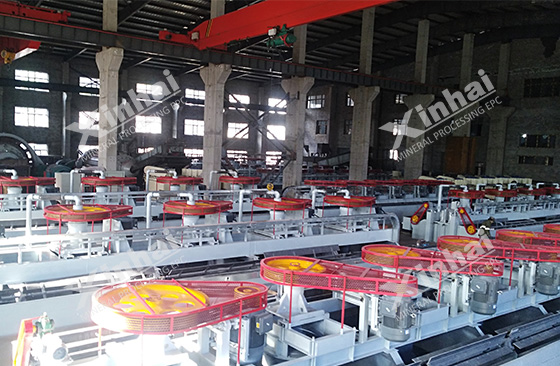
Before the mineral is flotated, stage grinding and classification of coarse and fine ore particles are required. These two processes are key steps to ensure the success of flotation. Through stage grinding and classification, the ore particle size and pulp concentration suitable for flotation can be obtained, and the pH value that satisfies flotation can be obtained by adjusting the pulp. The technical operation process should select the process and grinding conditions that can maximize the mineral processing indicators (such as recovery rate and concentrate quality) and operating efficiency (such as processing capacity and kinetic energy consumption) according to specific conditions.
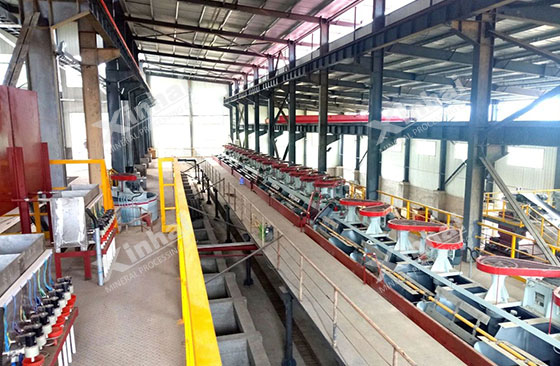
For the formulation of flotation process for complex ores, it is of great significance to study the performance of stage grinding and its influence on flotation results. The development of stage grinding and stage flotation process has made the selection process of complex ores widely used, so that the target metal minerals can be effectively recovered into the concentrate of the same name. Stage grinding has two major advantages. One is to reduce the amount of secondary grinding: after stage grinding, the ore can be graded at a coarser particle size, thereby reducing the burden of secondary grinding and reducing costs. The second is to facilitate filtration: coarse-grained concentrate helps to improve filtration efficiency.
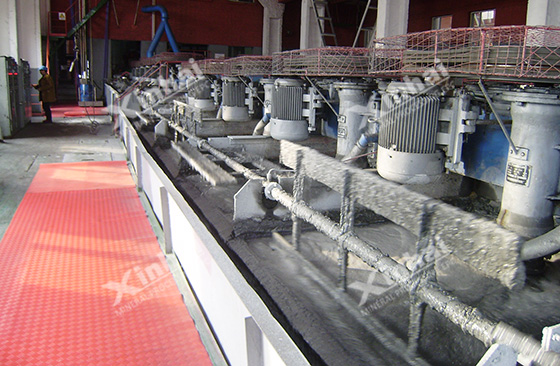
Since stage grinding can improve the dissociation efficiency of ore, the specific surface area of mineral particles is reasonably controlled during flotation, thereby improving the effect of reagents and minerals, and ultimately improving the flotation recovery rate and concentrate quality.
In summary, the application of flotation process technology in the mineral processing industry is of broad and important significance, and its effect is affected by many factors. Therefore, studying flotation technology and designing corresponding flotation technology according to the characteristics of the ore are key to achieving efficient mineral processing and improving economic benefits. Continuous in-depth technical research and process optimization will promote the development of flotation technology, help meet the challenges of different ore types, and improve the overall technical level of the mineral processing industry.
To find out more about our products and solutions, please fill out the form below and one of our experts will get back to you shortly.